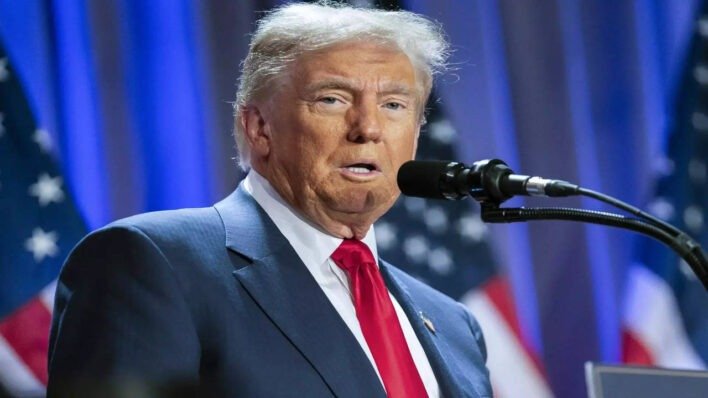In an address to the House of Republicans, US President-elect Donald Trump, re-elected for a second term, alluded to the possibility of seeking an unprecedented third term if his supporters.
Trump’s remarks have fuelled speculation, despite constitutional restrictions that limit a US President to two terms. During his address in Washington DC, Trump stated, “I suspect I won’t be running again unless you (supporters) say otherwise.” The statement was met with enthusiastic support from Republican attendees.
What limits Trump’s presidential terms?
Under the US Constitution’s 22nd Amendment, a president is restricted to a maximum of two terms, even if they are non-consecutive. This rule, ratified in 1951, was designed to prevent any one individual from holding excessive power, inspired by Franklin D. Roosevelt’s unprecedented four terms. Constitutional scholars affirm that the amendment would need to be repealed for Trump, or any future president, to serve beyond two terms.
How hard is it to amend the US Constitution?
To repeal the 22nd Amendment, a new amendment must be passed by both houses of Congress with a two-thirds majority and ratified by at least three-fourths of state legislatures — an exceptionally challenging feat given the current political divide. Of the 435 House members, 290 would need to support such a measure, along with 67 of 100 senators. Subsequently, at least 38 out of 50 states would need to ratify the change, a process requiring widespread bipartisan support.
Broader implications of Trump’s statement
Trump’s remarks have sparked renewed public discourse on presidential term limits and the safeguards built into the US Constitution to prevent concentration of power. Political analysts suggest that while Trump’s statement may be largely rhetorical, it raises questions about how presidential norms and rules are interpreted. Constitutional experts widely agree that overturning the 22nd Amendment would be unlikely, but the conversation itself may have lasting political ramifications as it tests the boundaries of executive power.
The US Congress enacted the 22nd Amendment following Franklin D. Roosevelt’s long tenure, with bipartisan support to maintain two-term limits as a democratic standard, echoing the precedent set by George Washington. Lawmakers and historians view this restriction as a vital check on the executive branch, designed to preserve the balance of power and prevent any single figure from holding prolonged control.






